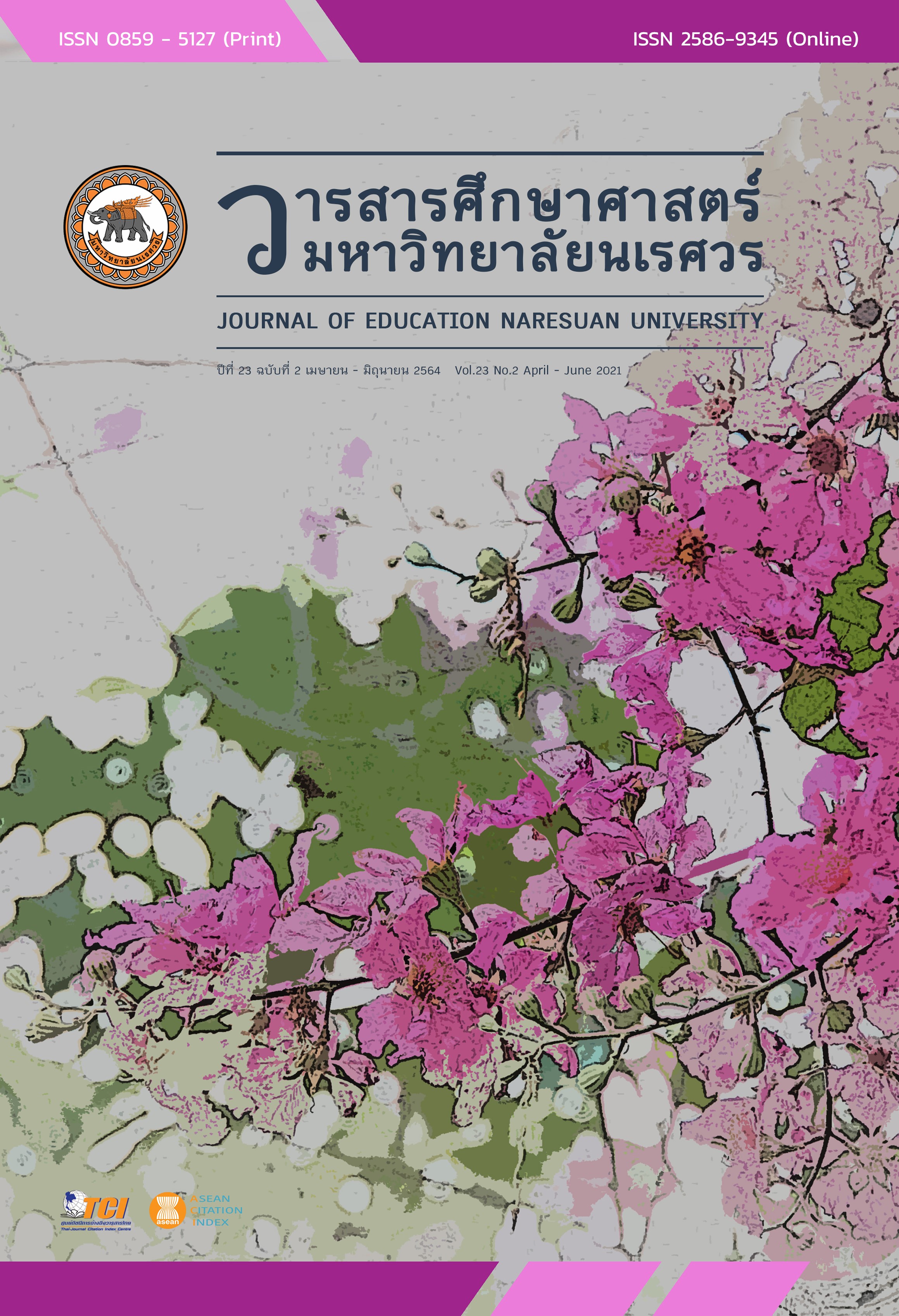DEVELOPMENT OF MEASUREMENT INSTRUMENT FOR TRANSFORMATIVE LEARNING PROCESS OF GRADUATE STUDENTS การพัฒนาเครื่องมือวัดกระบวนการเรียนรู้เพื่อการเปลี่ยนแปลงของนิสิตบัณฑิตศึกษา
Main Article Content
Abstract
The purposes of this research was to develop and examine the quality of measurement instrument for transformative learning process of graduate students. Data were collected by 5-point rating scale questionnaire, completed by 100 graduate students of education. The data were then analyzed by the second order confirmatory factor analysis, using Mplus 7.11. The research findings were as followed;
1. Measurement instrument for transformative learning process of graduate students had
5-point rating scale questionnaire consisted of 4 dimensions: mindset assessment within the mind, knowledge sharing for creating new alternatives and learning, planning of preparing for creating new roles, and building and integrating of competence into learning and experience by new perspective. Each of the dimensions had 6 items (a total of 24 items).
2. Measurement instrument for transformative learning process of graduate students had content validity as examined by experts. The reliability coefficients ranged between .806 - .863. It also had construct validity as shown by the model fit with the empirical data (Chi-square (224, N = 100) = 259.516, p = .052, CFI = .972,
TLI = .965, RMSEA = .040, SRMR = .073).
Article Details
The owner of the article does not copy or violate any of its copyright. If any copyright infringement occurs or prosecution, in any case, the Editorial Board is not involved in all the rights to the owner of the article to be performed.
References
Brock, S. E. (2010). Measuring the importance of precursor steps to transformative learning. Adult Education Quarterly, 60(2), 122–142. DOI: 10.1177/0741713609333084
Cranton, P. (2006). Fostering authentic relationships in the transformative classroom. San Francisco, CA: Jossey-Bass.
Gregory, R. J. (2014). Psychological testing: History, principles, and applications (6th ed.). London, UK: Pearson.
King, K. P. (2009). The handbook of the evolving research of transformative learning: Based on the learning activities survey. Charlotte, NC: Information Age Publishing.
Mezirow, J. (1978). Perspective transformation. Adult Education, 28(2), 100-110. DOI: 10.1177/074171367802800202
Mezirow, J. (2000). Learning to think like an adult: Core concepts of transformational theory. San Francisco, CA: Jossey-Bass.
Mezirow, J. (2003). Transformative learning as discourse. Journal of transformative Education, 1(1), 58-63. DOI: 10.1177/1541344603252172
Mezirow, J. (2012). Learning to think like an adult: Core concepts of Transformation Theory. In E. W. Taylor & P. Cranton (Eds.), The handbook of transformative learning: theory, research, and practice (pp. 73-95). San Francisco, CA: Jossey-Bass.
Sessa, V. I., London, M., Pingor, C., Gullu, B., & Patel, J. (2010). Adaptive, generative, and transformative learning in project teams. An International Journal, 17(3), 146-167. DOI: 10.1108/13527591111143691
Soper, D. S. (2018). A-priori sample size calculator for structural equation models [Software]. Available from http://www.danielsoper.com/statcalc
Taylor, E. W. (2007). An update of transformative learning theory: A critical review of the empirical research (1999-2005). International Journal of Lifelong Education, 26(2), 173–91. DOI: 10.1080/02601370701219475
Taylor, E. W., & Cranton, P. (2012). The handbook of transformative learning: Theory, research, and practice. San Francisco, CA: Jossey-Bass.
Yeboah, A. K. (2014). Transformative learning experiences of international graduate students from Africa. Journal of International Students, 4(2), 109-125.
Yeboah, A. K., & James, W. (2014). Transformative learning experiences of international graduate students from Asian countries. Journal of Transformative Education, 12(1), 25-53. DOI: 10.1177/1541344614538120


